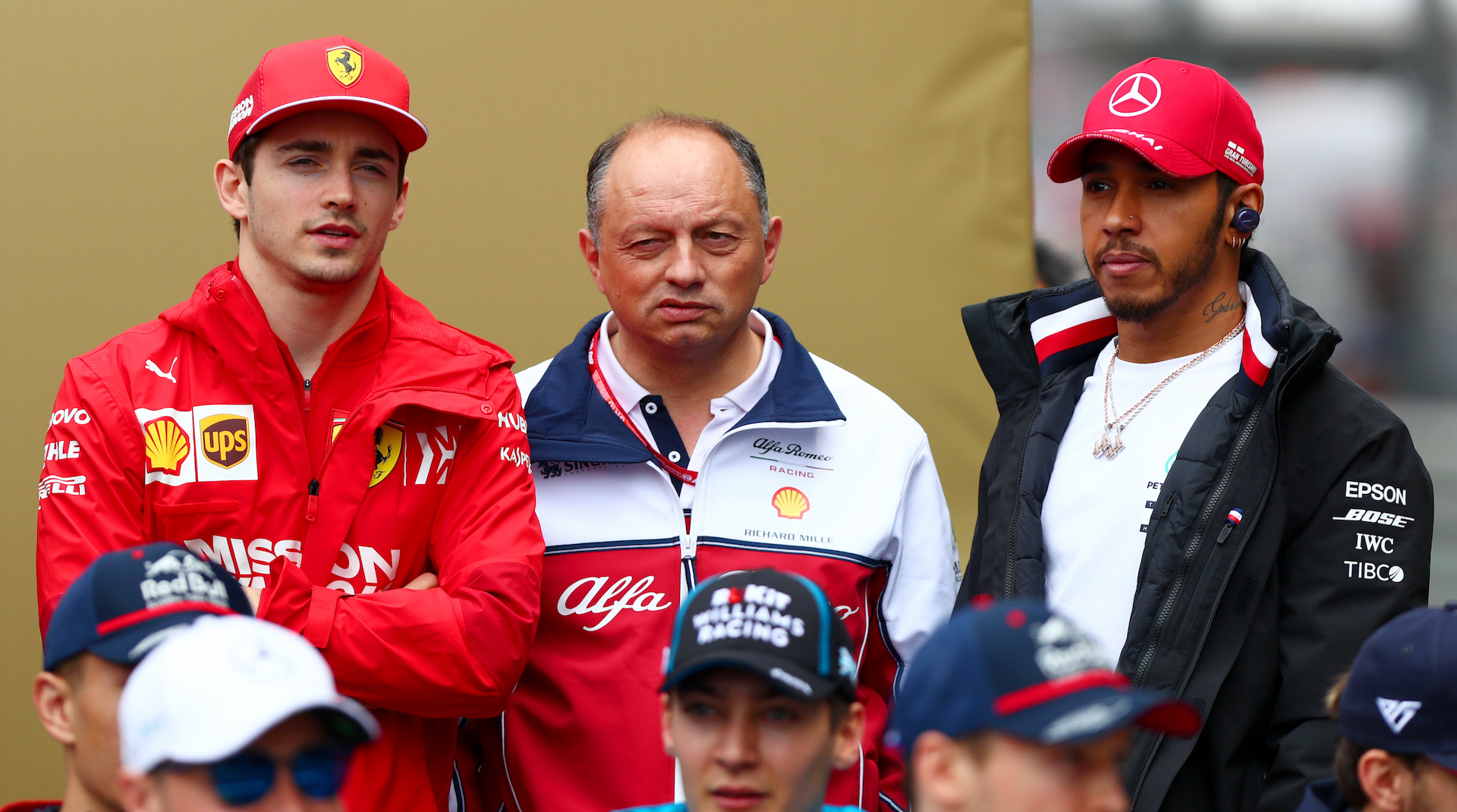All roads lead to Maranello. That's a suitably ominous statement to contextualize the rest of the news, which is that Lewis Hamilton, after exercising a release option in his contract, will be leaving Mercedes after the 2024 season to join Ferrari on a multi-year deal. As tampering is famously a North American invention, Hamilton continues the cycle of drivers signing with Ferrari before their previous contract fully expired—and Carlos Sainz Jr. will exit the team at the end of the 2024 season, similar to how Sebastian Vettel left in 2020.
The timing is just precise enough that it's easy to crack jokes about how Hamilton saw Mercedes' 2024 car and sprinted away as fast as he possibly could. It's also the most logical explanation for a decision that was genuinely unimaginable back in 2020, when Hamilton and Mercedes seemed inseparable: Two years of wasted development on the zero-pod concept were simply two years too many, especially with a strict spending cap. Mercedes managed to eke out a second-place finish in the constructor championship over Ferrari last year (three points!), but they got there out of consistency and not pace. After 11 seasons with Mercedes Hamilton is hungry for an eighth championship. He's also 39 years old, and if the upcoming 2026 engine regulation changes will make picking a team a gamble, he may as well get himself one year at a non-Mercedes team before then, especially one who reportedly poached an engineer he trusted. And why not reunite with Fred Vasseur, who ran the ART Grand Prix team that Hamilton won GP2 with, way back in 2006?
Ferrari's end is easy to understand. Sainz is a great driver, but he's not Lewis freakin' Hamilton. Charles Leclerc is brilliant in spots and also has the unfortunate habit of making terrible mistakes at terrible times. Pair Leclerc and Hamilton together, and you manage one of the best driver combinations on the grid, with the additional hope that Hamilton's reliability will help some of the team's past struggles.
But it's still strange. Hamilton has little motivation for his next year at Mercedes beyond being a professional athlete, which presumably means that he will push himself to compete no matter what is at stake. Meanwhile, Sainz will have all the motivation to have a great year—in the most blessed/cursed ending, it may very well be his ticket back into a Red Bull seat. George Russell, who did not, by most definitions, get along with Hamilton on track last season, will be glad to be an undisputed number one driver, so long as Mercedes doesn't fill Hamilton's seat with some rookie protégé who can immediately hit the ground, uh, driving.
And that's all weird enough without trying to imagine Hamilton actually at Ferrari. Lewis Hamilton wearing all red? Even during the Santander days of McLaren, he was mostly in white. Lewis Hamilton standing next to Charles Leclerc? If Peter Bonnington doesn't follow Hamilton to Ferrari—and there isn't much precedent for him to do so—does that mean we'll get to hear Hamilton hashing it out over the radio with Riccardo Adami, or some other Ferrari race engineer? What if Ferrari implodes again?
The benefit of a legacy like Hamilton's, though, is that it's hard to make a wrong decision when you have being the undisputed best driver of your generation to fall back on. Picking the right team is always a lottery. If Ferrari implodes, then Ferrari implodes. Vettel still wouldn't have any more World Championships if he had stuck with Red Bull through 2015; Hamilton's initial move to Mercedes from McLaren was seen as extremely risky and it clearly paid out in full, and then some, up until this point. Besides, it's possible all of this may be irrelevant anyway. With Red Bull and Max Verstappen dominating the rest of the field, it doesn't matter if Hamilton loses a championship at Ferrari instead of Mercedes. There's no sense harping on about team loyalty—this is Formula 1 we're talking about.
As much as we have really, really, really, really, really, really, really emphasized the recent streak of engine implosions and strategic incompetence that has dogged Ferrari, Ferrari has a grip on collective imagination that no other team has. The only other entity currently in F1 to have the same kind of sway is none other than Lewis Hamilton. That's part of the impossibility of the whole situation, that both Ferrari and Hamilton and their combined 22 drivers' championships loom too large to imagine in the same room, much less a single sentence, and especially much less a simple phrase like "Ferrari driver Lewis Hamilton." Ferrari driver Lewis Hamilton! Say that a few times, until it sticks. Unlike Vettel, lifetime Michael Schumacher fan, Hamilton—who was always an Ayrton Senna guy—doesn't have the childhood dreams to ease the transition. Then again, as Vettel said: "Everybody's a Ferrari fan. Even if they're not, they are a Ferrari fan."
But the other discordant element stems from that idea: Everybody's a Ferrari fan. The image of Ferrari is so contingent on its long-lasting symbols—the red, the stallion, the Tifosi—and an infatuation with its own legacy that frankly has not panned out into championship success in recent history. At Mercedes, Hamilton was an individual, and unparalleled in his individualism. Let's not get confused: If either Ferrari or its fans expect Hamilton to be flattened in deference to the Ferrari legacy, until he is merely "Ferrari driver Lewis Hamilton," the sport would have lost more from the move than it had gained. Talk about collective imagination or cultural legacy—a championship won in that hypothetical world would sour quickly. But if Hamilton manages to drag Ferrari his way, well, all the more power to him. He's done bigger things before even setting foot in a Ferrari car.






